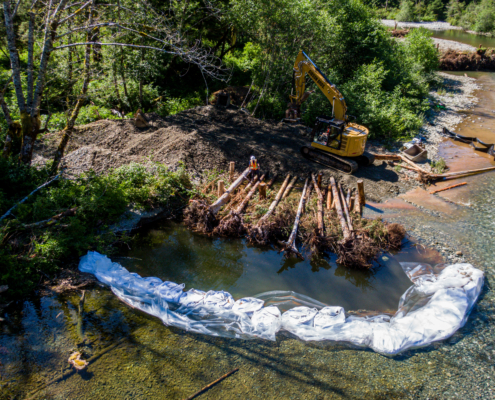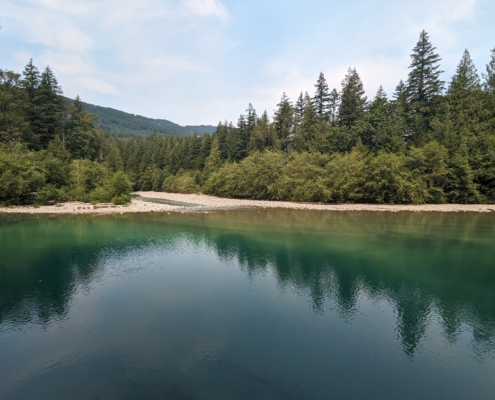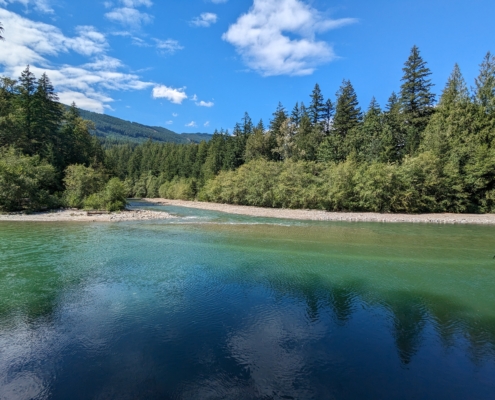The signs show that salmon recovery efforts are working… let’s keep it up!
Looking back on 2024, we are so proud to have accomplished such a powerful tool as the State of Salmon Report, which has given us more data than ever before on where salmon are struggling, where they are thriving, and where they need our help.
We had a strong wake-up call, as the data revealed that more than 70% of all salmon populations are below their long-term average spawner abundance. It is clear that we need to act fast, particularly in regions that are being impacted more acutely by the impacts of climate change.
The data also gave us some encouraging signs of recovery on Vancouver Island and Mainland Inlets, regions where so many passionate people for salmon have been carrying out important restoration initiatives for salmon. We know that our coordinated salmon recovery efforts in partnership with First Nations, government, and community stakeholders are making a difference.
Will you help us take action for those populations that need it most with a gift of $50, $125, or even $250?
The deadline for claiming charitable donations on your 2024 tax return has been extended through the end of February 2025.
Decades of heavy logging in the Tranquil Creek region have devastated the riparian corridor. Habitat conditions for fish and wildlife have widely degraded. ƛaʔuukʷiʔatḥ (Tla-o-qui-aht) First Nation, in partnership with Redd Fish Restoration Society, have launched efforts to restore the watershed and recover local chum, coho, and Chinook salmon populations. Thanks to support from donors like you, PSF was able to help fund the placement of log jams to create long-term fish habitat and support natural watershed processes. They sort sediment, slow rushing water, and helping to store groundwater during drier summer months, combatting effects of climate change.
Leveraging donations from dedicated people for salmon, PSF is invested in giving the important population that is Fraser River sockeye a fighting chance, particularly in the important tributary that is the Harrison River. The spawning grounds beyond Harrison Lake and crucial for all salmon species, however their way has been obstructed at Big Silver River since the extreme flooding in November 2021, and furthered due to last year’s severe drought conditions. This year, PSF provided $16,000 to restore water flow to Big Silver, forging a channel to reconnect the obstructed right arm to the mainstem – and just in time for the sockeye run! With 5,000 square metres of spawning habitat restored, the area should see an estimated 500,000 sockeye and chum fry, 225,000 pink fry, 125,000 Chinook fry and 1,125 coho smolts per year.





